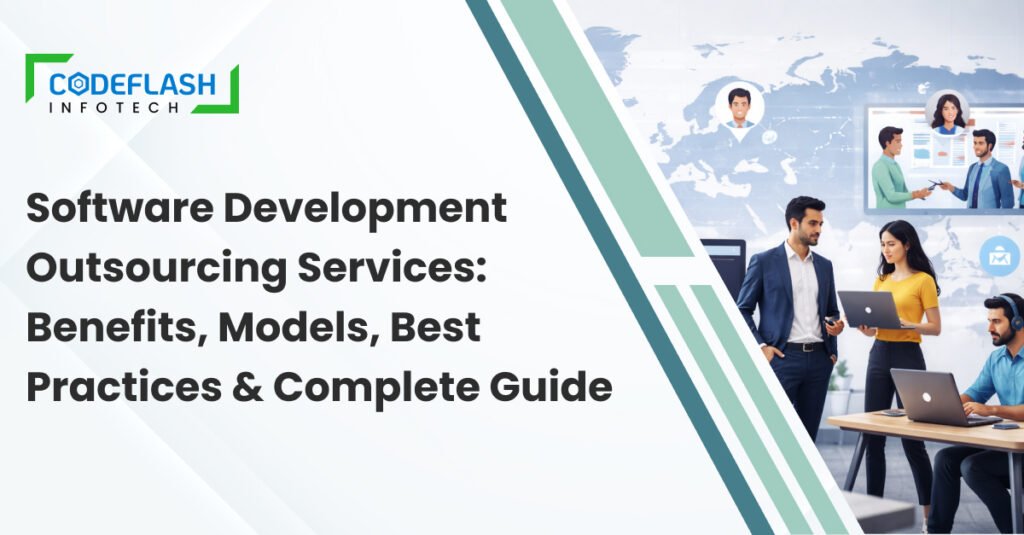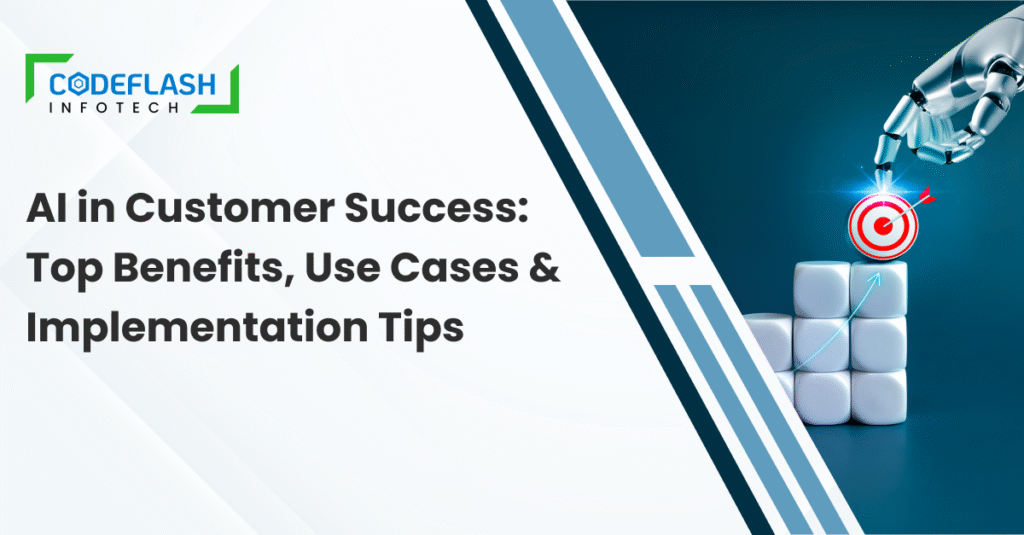
The Cost of Hiring a DevOps Engineer: An In-Depth Guide
19 JULY
In a corporate setting where effectiveness and ingenuity are of utmost importance, the strategic decision to hire DevOps engineers has become increasingly crucial. The demand for these highly adaptable experts is rapidly increasing, with good reason.
Understanding the DevOps Industry Growth
IMARC Group Research predicts that the DevOps industry will reach a remarkable $32.7 billion by 2028, highlighting the tremendous importance of this function. However, the term “DevOps engineer” is, to some extent, an industry creation, leading to a lack of a universal hiring pattern for DevOps developers.
The Versatility of DevOps Engineers
A DevOps engineer can be likened to a versatile toolbox, possessing a wide range of abilities to optimize the software development process. Their main objective is to aid different development teams in enhancing their procedures and attaining maximum efficiency. A DevOps developer is the crucial element that unifies and supports the entire system.
What Works with DevOps Engineers?
DevOps combines software development (Dev) with information technology operations (Ops) to improve the complete product development cycle. It’s a cooperative approach emphasizing automation and team collaboration to quickly adapt to changing market conditions, raise customer satisfaction, and ultimately spur company expansion.
These two roles are sometimes combined, with DevOps engineers contributing to the entire development life cycle. They create, put into use, and oversee the instruments required to guarantee ongoing supply, integration, and enhancement. In doing so, they improve the software systems’ security, stability, and effectiveness, which results in better business outcomes.
Why Bring on Board DevOps Engineers?
The broad idea of DevOps encompasses various domains, including Continuous Integration and Continuous Delivery (CI/CD) and security audits. Adopting the DevOps methodology and hiring DevOps engineers has numerous advantages for your company:
- Unlimited Scalability:
DevOps engineers can scale applications up or down as needed, ensuring your app manages increased traffic flawlessly. - IT Modernization:
Utilizing Infrastructure as Code (IaC) solutions can update your IT ecosystem, enhancing output, scalability, efficiency, and reliability. - Quick and Regular Delivery:
DevOps engineering talent enables end-to-end automation of release and development pipelines, leading to a quicker product delivery cycle. - Differential Security:
Working with DevSecOps concepts and standard configuration management approaches ensures software security is not sacrificed for speed. - Credibility of SEO:
DevOps engineers optimize website speed, ensuring higher search engine rankings and better visibility.
Cost Of Hiring a DevOps Engineer in 2024
If you wish to engage DevOps developers, consider the following procedure:
- Identify the Conditions:
Define the precise needs and qualifications for the role. - Promote Available Roles:
Use specialist platforms, professional networks, and job boards to reach a large pool of DevOps talent. - Systematic Screening:
Evaluate applicants’ suitability through preliminary screenings or technical evaluations. - Cultural Fit:
Assess candidates’ compatibility with your company’s values and team dynamics. - Onboarding:
Provide thorough onboarding to help new hires integrate into the team and business culture.
How Can I Hire A DevOps Engineer In 2024?
The following procedure should be considered if you wish to engage DevOps developers:
Identify the Conditions
- When hiring competent DevOps developers, define the precise needs and qualifications for the function.
- Decide if you need to recruit a DevOps engineer who can only handle DevOps tasks or if you can get someone who can handle more things.
- When developing effective ways to hire a DevOps developer, consider the necessary abilities, experience, and cultural fit.
- When looking to employ specialized DevOps engineers, investigate different avenues for recruiting and strategies to draw in applicants
- Promote available roles on specialist platforms, professional networks, and job boards to connect with a large pool of DevOps talent.
- Initiate focused outreach and networking initiatives to establish connections with competent DevOps engineers and motivate them to submit applications.
- Provide a systematic screening procedure to evaluate applicants’ suitability for the DevOps engineer position.
- Conduct preliminary phone screenings or technical evaluations to evaluate candidates’ technical proficiency and knowledge of DevOps procedures.
- Assess applicants according to their capacity to carry out the responsibilities of a committed DevOps engineer and make a valuable contribution to the team.
- During the hiring process, assess candidates’ compatibility with your company’s values, work culture, and team dynamics.
- Evaluate their level of devotion to carrying out the responsibilities of a certified DevOps engineer and making a positive impact on the team.
When hiring DevOps engineers, consider the applicants’ adaptability, willingness to work in a team, and curiosity.
- Create a thorough onboarding procedure to help new personnel integrate into the team and the business’s culture.
- Provide devoted assistance and materials to help recently recruited DevOps engineers settle into their positions.
- Encourage a cooperative and welcoming workplace where committed DevOps engineers are encouraged to thrive and feel appreciated.

Principal Duties and Tasks of a DevOps Engineer
Now that you know the advantages a DevOps engineer brings to a company, let’s look at some of their specific responsibilities.
- CI/CD stands for continuous integration and delivery
Create, design, and manage a continuous integration and delivery pipeline with Jenkins, Gitlab, CircleCI, or AWS CodePipeline. A DevOps engineer can reduce the deployment time from hours to minutes! - Script and Automate Repeated Tasks
Automate servers, cron jobs, containers, infrastructure, and any process a DevOps engineer can codify with bash and Python scripting. - Uphold and Establish Infrastructure
DevOps can introduce new production environments using Cloudformation or Terraform. Their strong understanding of IaC also allows them to maintain and deploy infrastructure using Infrastructure as Code technologies. - Hardening and Security
DevOps can manage security events involving attacks, security audits, server hardening, and user security controls like AWS accounts, SSH keys, Linux/Unix rights, permissions, SSL certificates, encryption, and API key encryption (Amazon KMS). - Diagnose and fix any Linux system.
Is there a DNS issue? Handler? Are they linked in? Do emails not function properly? An AWS DevOps Engineer can assist. They should also be competent in maintaining Windows servers with comparable duties. - Cloud Networking Activities
DevOps experts can establish virtual networks, solve networking problems, deploy VPN services, and connect several VPC networks. - Dockerize Applications for Open Source Software
The DevOps engineer creates the microservices architecture of your enterprise SaaS application. - Adherence to Security
Ensure application security by PCI, HIPAA, ISO27001, or SOC2 rules, or assist with technical requirements, from security compliance to VPN creation, hardening containers, embracing DevSecOps, vulnerability assessments, patches, and disaster recovery plans. - Reverse Engineering
Use tools like Python, Boto3, and the AWS SDK for back-end and AWS development. - Troubleshooting Applications
They can debug your online application, whether written in Java, Node.js, Python, Go, or Laravel. Sometimes, the software engineer is more responsible for this. Still, the DevOps engineer should be able to distinguish between a DevOps issue and a code issue and direct the problem to the appropriate tech team. - Organize and Manage Databases
Although the DevOps engineer is not a DBA professional per se (a specialist in SQL queries), they are skilled in building, creating, and troubleshooting database clusters, such as PostgreSQL, RDS replicas, MongoDB sharding, and MySQL.
It’s crucial to remember that only some of the duties listed above may be completed by a DevOps developer. However, 50–70% of the tasks are often appropriate for a competent senior AWS DevOps Engineer.
Various Choices for hiring a DevOps engineer
Hiring DevOps specialists has many alternatives; navigating the hiring process can be challenging. Alternative recruiting methods, such as part-time or outsourced work, have emerged since traditional full-time hiring may only sometimes be the best option.
- Internal Recruiting
Hiring DevOps engineers inside is a conventional strategy frequently chosen by companies seeking sustained stability and a committed dedication to their development and infrastructure. The presence of full-time staff members fosters a dependable and consistent approach to managing and enhancing DevOps processes, as they are dedicated to the organization. Because the team is internal, it can respond to new difficulties more rapidly, which helps the organization quickly adjust to changing needs.
However, there are factors to take into account when hiring internally. Compared to alternative employment choices, fixed costs for full-time employees, such as salary, benefits, and training expenditures, can be more significant. Furthermore, although internal teams provide consistency, external teams may need to be more scalable, which could result in a slower rate of team size adjustments in response to project demands. It’s crucial to consider the cost of hiring a DevOps engineer when evaluating these options, as this can impact the overall budget and resource allocation within the organization.
- Individual DevOps Engineers
Hiring DevOps engineers gives companies a flexible and project-specific approach to employment. Companies can access specialized abilities without committing to a long-term relationship by hiring freelancers who provide their knowledge for a set amount of time or project. This flexibility benefits companies whose DevOps needs are project- or time-based.
One of the main benefits of hiring freelancers is the flexibility to scale the team up or down in response to a project’s particular requirements. Businesses with varying workloads or those looking for expertise for a specific stage of development may find this adaptability helpful. Freelancers give projects a new viewpoint because they are frequently knowledgeable about various technologies and approaches.
Additionally, the cost of hiring a DevOps engineer as a freelancer can be more predictable and manageable for short-term or specific projects. This allows companies to budget effectively without the long-term financial commitments of full-time employees.
- Using DevOps Service Providers for Outsourcing
Businesses trying to maximize productivity and savings can consider outsourcing DevOps operations to specialist service providers. DevOps service providers deliver experience and a committed team of professionals to handle specific projects or continuous support. They often take the shape of consulting firms or managed service providers.
Essentially, outsourced teams integrate the abilities of contract workers and permanent staff members. Using this method, you may assemble a team knowledgeable about your project and ready for long-term collaboration. At the same time, a sizable pool of vendor personnel will preserve the flexibility and diversity of knowledge.
Furthermore, outsourcing enables businesses to concentrate on their primary operations while delegating infrastructure management, deployment, and monitoring tasks to outside specialists. The cost of hiring a DevOps engineer through outsourcing can be more predictable and often more affordable compared to maintaining an internal team, making it a practical option for many businesses.

In 2024, How Much Will It Cost To Hire A DevOps Engineer?
Are you curious about the cost? Are you curious about the cost of hiring DevOps engineers? The answer is a combination of factors that affect the total cost of hiring top-tier DevOps personnel, such as geography, experience, and specific skill sets.
The salary you’ll need to offer DevOps developers in 2024 will mostly rely on the position you’re hiring for and the candidate you choose.
Hiring a trained DevOps engineer from a major metropolis, such as New York Metropolis, for example, may cost you, on average, $145,479 in salary. Considering that it’s NYC, it’s a tad on the expensive side! However, the cost decreases to about $130,307 if you hire a DevOps engineer from Boston.
Second, experience is also significant. The average compensation for a DevOps developer with seven or more years of experience is $149,291. On the other hand, a person with less than a year of experience might bill you, on average, $81,910. Furthermore, salaries vary according to gender. A female DevOps engineer typically makes $140,403, whereas a male engineer makes roughly $137,793.
In the table column below, we’ve compiled the average cost of hiring DevOps engineers in the leading nations. (Glassdoor is the source.)
Country | Avg Base Pay(Per year) |
United States | $103K-$149K |
United Kingdom | $38K-$61K |
Australia | $94K-$135K |
Brazil | BRL 13K BRL 32K |
Canada | $77K-$51K |
UAE | AED 16K /Month AED 55K/Month |
India | $6,015 (500K INR) $14,436 (1200K INR) |
Europe | $99K $164K |
Conclusion
Thus, the cost of hiring a competent DevOps engineer varies greatly depending on several factors, including location, experience level, national average salary, and even purchasing power parity. Hiring DevOps professionals can be challenging, but it is achievable. Since DevOps developers are experts in Linux and cloud services, having them on staff is ideal. When hiring, it’s important to remember that every DevOps engineer possesses technical proficiency in a particular language. Additionally, considering candidates’ soft skills is crucial, as this ensures they can grow in the role.
How Much Does it Cost to Hire an Offshore Django Developer? Similar to DevOps engineers, the cost of hiring an offshore Django developer can vary widely based on location, experience, and specific project requirements. Offshore hiring can be a cost-effective solution, providing access to a global talent pool while managing expenses effectively.





